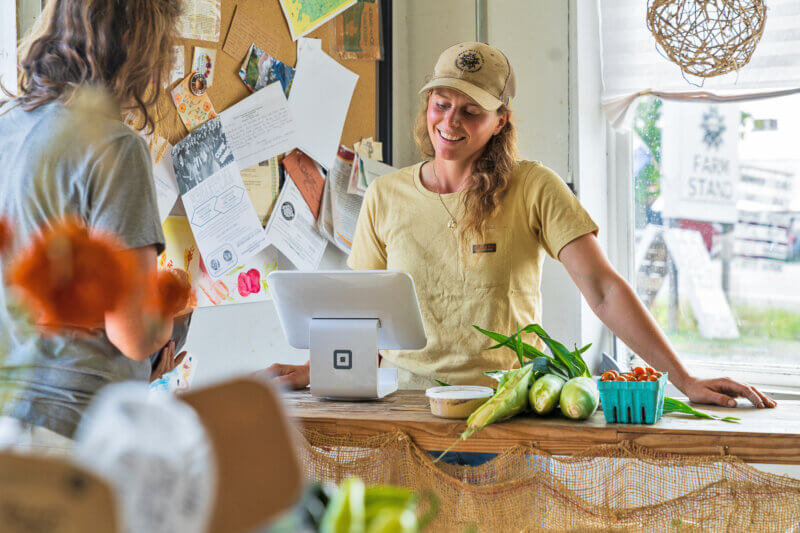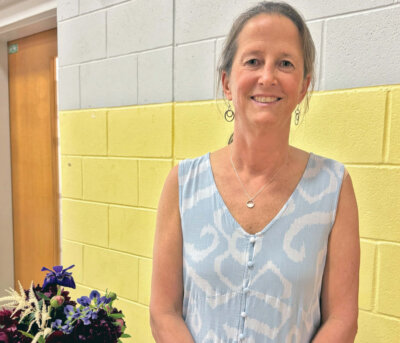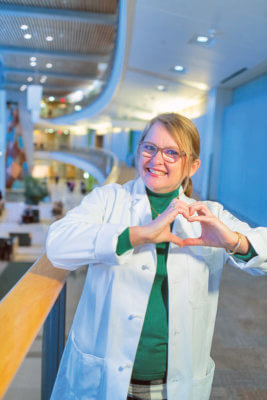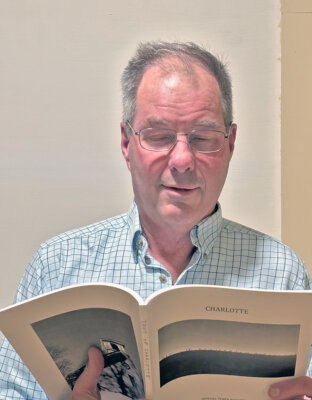Head Over Fields persevering after challenging summer
Katie Rose Leonard’s third year at the helm of Head Over Fields farm wasn’t easy. “It was my most challenging growing season of the 10 years that I’ve been growing,” she said, “and as a young farm we’re still learning our land.”
Nevertheless, Leonard is happy with how the season panned out and looking forward to next year.
Leonard said Head Over Fields has been growing quickly and this year they planted on new fields, some of which had very heavy soils. “We weren’t able to get into our fields with a tractor for most of July and early August,” she said. “Some things didn’t get planted and others died in the field.”
On the other hand, this was the first year that Leonard used high tunnels. As a result, she had what she described as an amazing crop of tomatoes, which is the farm’s most important crop. After tomatoes, the farm is known for their bagged cut salad greens including baby kale, arugula, mixed greens and a spiced mix consisting of mustard and Asian greens. The farm’s high tunnels are currently filled with winter greens.

There was never any question that Head Over Fields would be a certified organic farm. Leonard believes it’s important her customers know that the farm holds itself accountable for soil-based, sustainable agriculture including cover crops and that they prioritize soil health and organic matter. The farm focuses on vegetables and dabbles in herbs and flowers.
More than half of Head Over Fields’ income comes from their farmstand, followed by the Shelburne Farmers’ Market and their community-supported agriculture or CSA with some additional money coming from wholesale sales to restaurants.
The farmstand has always been the key to Leonard’s business plan. “I really wanted this space to serve as a one-stop shop for people to get what they need to make a meal at home,” she said.
Leonard has a background in retail and direct-to-consumer sales which helped her set up the farmstand. She doesn’t grow potatoes or sweet potatoes so she purchases them locally and will also buy produce if she needs to supplement what she grows. This year, for instance, she needed to purchase kale from another farm. In addition, the farmstand sells fruit, mostly from Lincoln, meat, mostly from Charlotte, and fish caught in Alaska — but by a Vermont angler.
Head Over Fields also sells honey from hives on their land, yogurt, local ice cream, cheeses, non-alcoholic beverages, dried pasta, pasta sauces, jams and preserves. Leonard carries some international products like oil, vinegar and mustard so customers have all they need to make a meal. They don’t carry a lot of snacks, but Leonard is hoping to add some grab-and-go meals.
“This section of Route 7 is underserved,” Leonard said, “so I knew I wanted to turn the barn into a market.”
In 2022, Leonard had one full-time and one part-time employee but this year she grew to four full-time employees and one part-timer. She has retained most of those employees throughout the growing season although several have shifted to part time. A few will stay with Leonard through Thanksgiving when she wraps up the season.
“We had a wonderful year,” she said, “and I’m so thankful for this amazing team.”
Leonard also praised her husband who, despite having a full-time job, is heavily involved in the farm, including keeping the books and managing the payroll. “I wouldn’t be in business without him,” Leonard said.
Leonard strongly believes in the importance of prioritizing local food and keeping farmers on the land. “Food producers in this country are aging,” she said. “As a young person who has been invested in this for years, I still feel like we’re just getting started, and it makes me happy to be part of this.”
Despite the weather challenges of 2023, Leonard has found many positive things to focus on. The decision to put drainage around the shop, for instance, certainly paid off.
“Seeing those improvements be tested to their limits and have them work is another reminder that we’re doing the right thing in the face of climate change and building a more resilient farm,” she said.
Leonard isn’t done for the year since she will have a presence at the Shelburne Winter Farmers’ Market and will have some pop-up events at the farm.
“There was beauty in the wins,” she said. “That’s the place you need to be after every farming season.”
Related Stories
Popular Stories
If you enjoy The Charlotte News, please consider making a donation. Your gift will help us produce more stories like this. The majority of our budget comes from charitable contributions. Your gift helps sustain The Charlotte News, keeping it a free service for everyone in town. Thank you.
Andrew Zehner, Board Chair








